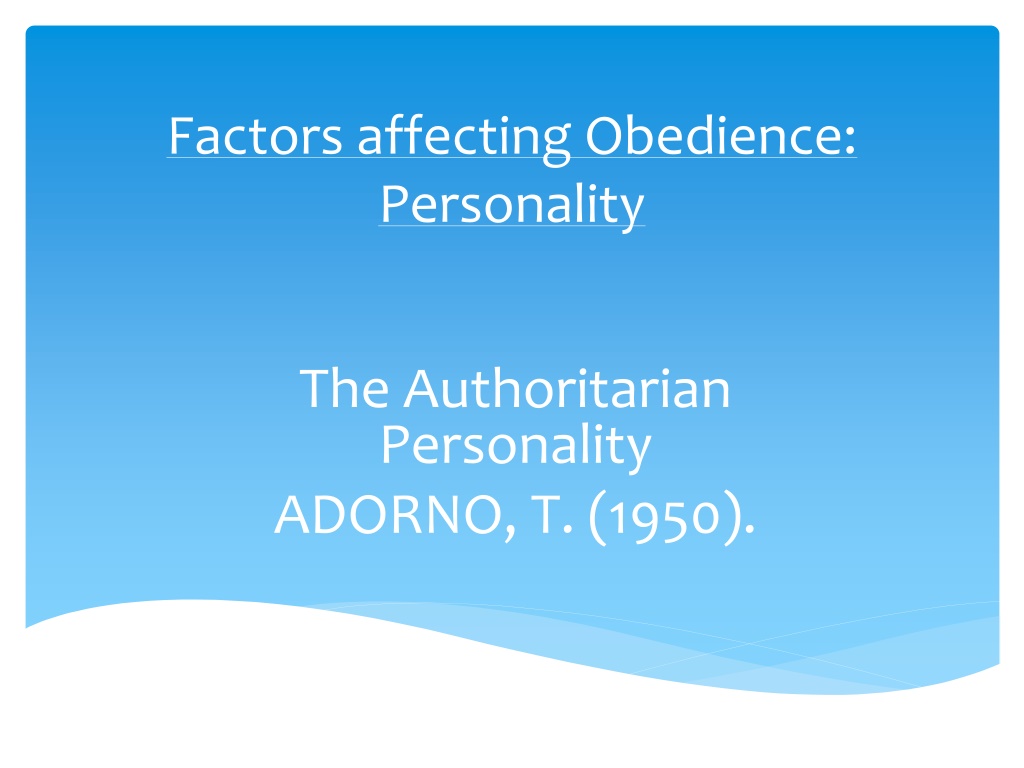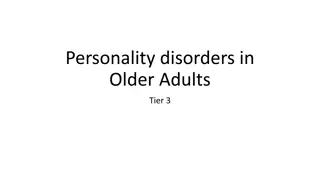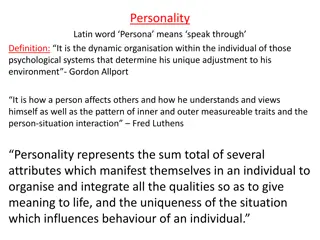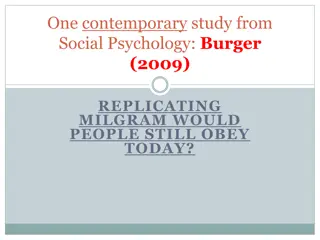Understanding Authoritarian Personality and Obedience Factors
Factors influencing obedience, like the Authoritarian Personality theory by Adorno, suggest that early childhood experiences, especially harsh upbringing, can lead to rigid beliefs, high obedience to authority, and discrimination towards perceived lower-status groups. Adorno's research utilized questionnaires and in-depth interviews to study personality traits linked to obedience and prejudice. The F-scale was developed to measure Authoritarian Personality traits such as receptivity to fascist ideologies and ethnocentrism. The development of this personality type highlights how repressed emotions can shape behaviors and attitudes towards authority figures and outgroups.
Download Presentation

Please find below an Image/Link to download the presentation.
The content on the website is provided AS IS for your information and personal use only. It may not be sold, licensed, or shared on other websites without obtaining consent from the author. Download presentation by click this link. If you encounter any issues during the download, it is possible that the publisher has removed the file from their server.
E N D
Presentation Transcript
Factors affecting Obedience: Personality The Authoritarian Personality ADORNO, T. (1950).
The Authoritarian Personality ADORNO, T. (1950). prejudice caused by a flaw in the personality an ego-weakness or maladjusted personality Adorno was also Jewish; academic interest triggered by a desire to understand the Holocaust his ideas fit with the Germans as different hypothesis
How did Adorno do his research? Created questionnaires about upbringing, politics and prejudices In-depth interviews of high and low scorers on the questionnaires, including Larry and Mack analysed transcripts and used them to design another questionnaire (the F-scale) which measured Authoritarian Personality AP predicts both obedience and prejudice to outgroups But Adorno criticised for his subjective interpretation of the original transcripts
The F scale many items (questions) which assess amongst other things Receptivity to fascist ideology Anti-Semitism Conservatism Ethnocentrism http://www.anesi.com/fscale.htm
The development of the Authoritarian Personality in early childhood Harsh and punitive style of upbringing leads to low self-esteem, self-loathing, anger and hostility in the infant This hostility cannot be expressed towards the parents due to fear Anger and fear are repressed (motivated forgetting) into the unconscious ; the emotions still exist but are buried away from conscious awareness, protecting the person from undesirable impulses to hurt the parents To resolve these inner feelings, the children identify with the parents and come to idealise them; they become overly subservient to those in power Outcome people with rigid, inflexible attitudes, highly obedient to those they perceive as higher status and brutal and discriminatory towards those seen as having lower status This anger and fear is expressed through displacement; these people will act as though outgroups members are threatening, and respond with aggression, however the real target is the parents, but this knowledge is buried in the unconscious
AP and obedience Alan Elms found that those scoring higher on the F-scale also gave higher shocks Yet, AP is only be a partial explanationof Milgram s study,; 65% obeyed up to 450 V and the percentage of people who score highly on the F scale is far lower than this. However, it may help to explain why some people found it easier to resist obedience and showed higher levels of defiance/ dissent e.g. very low scores on fscale























